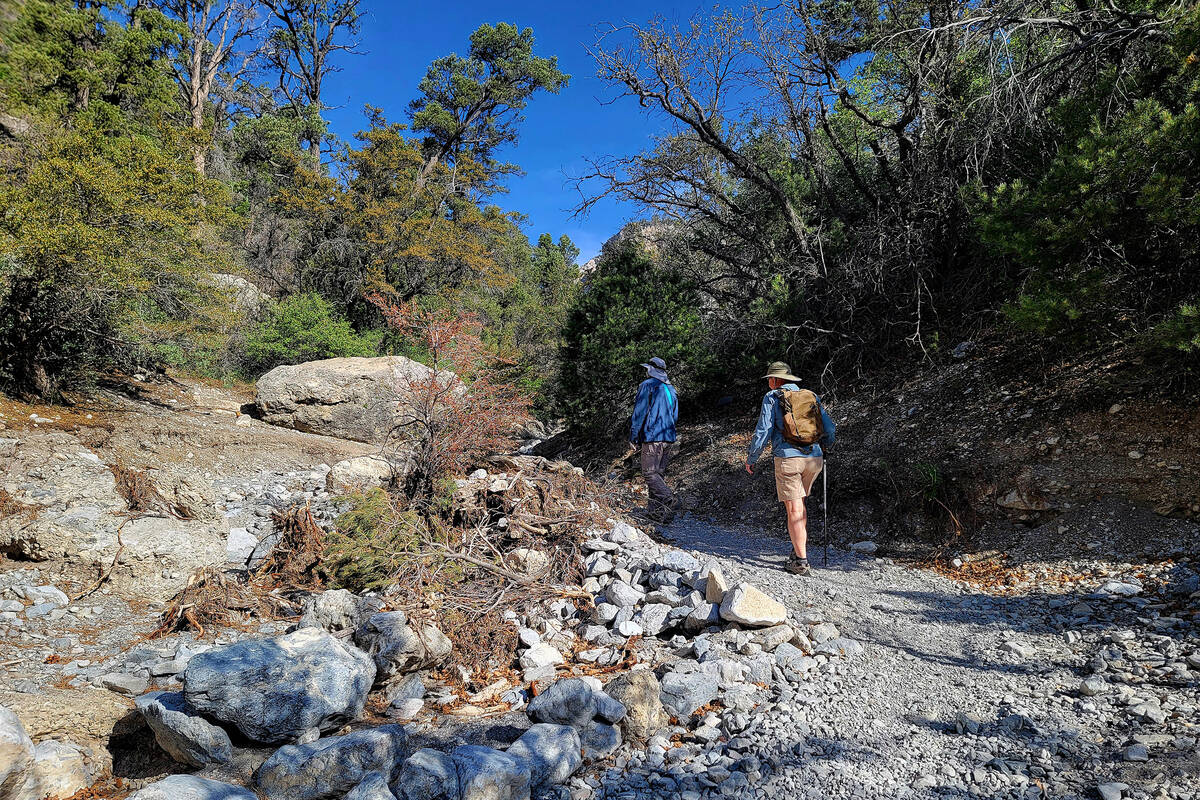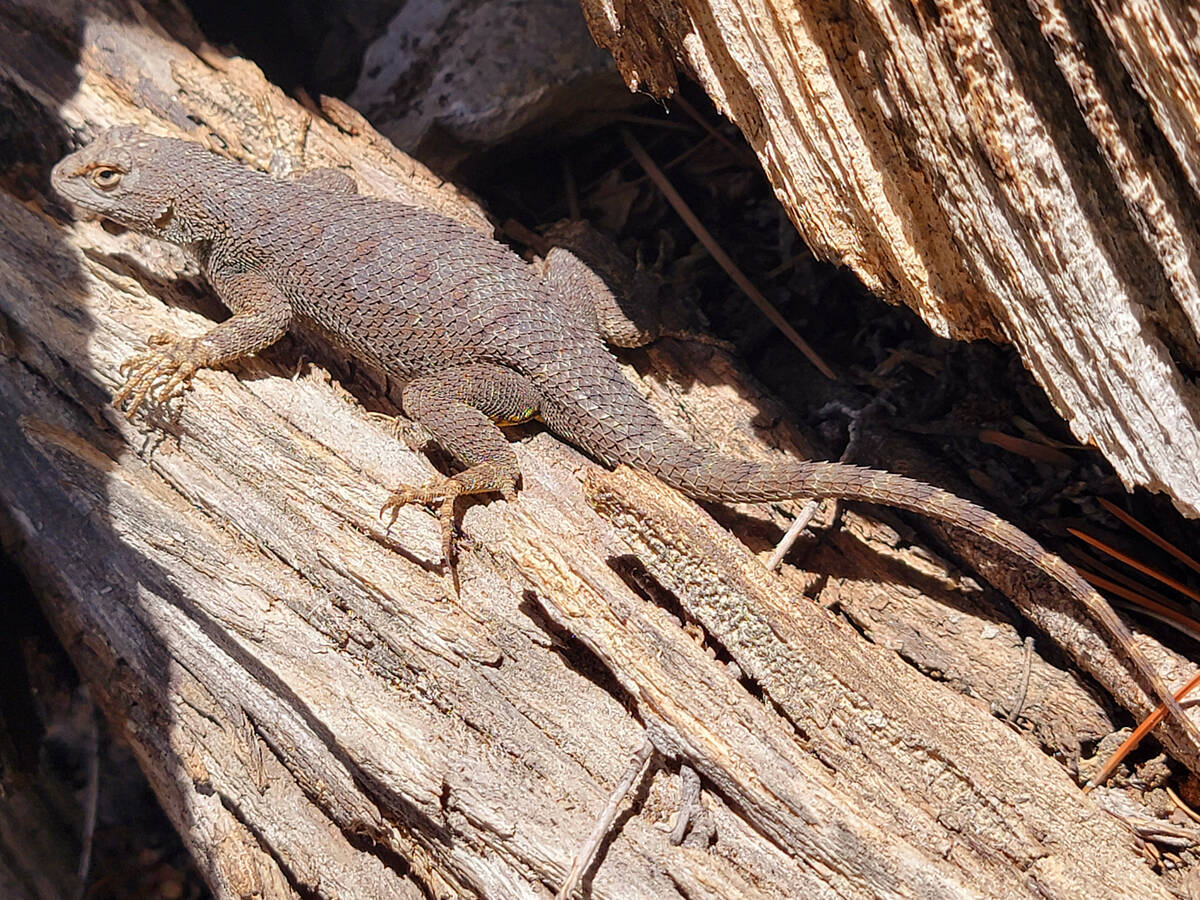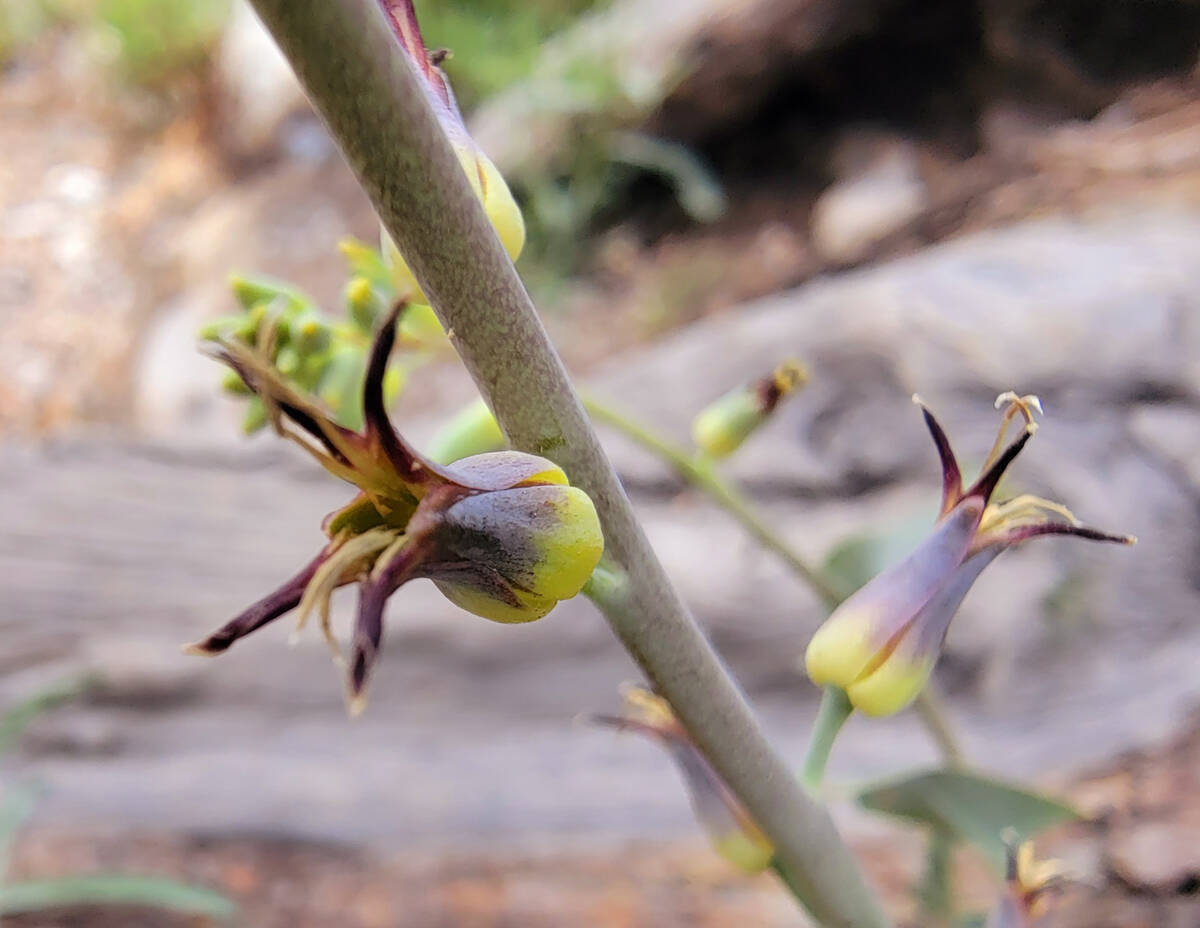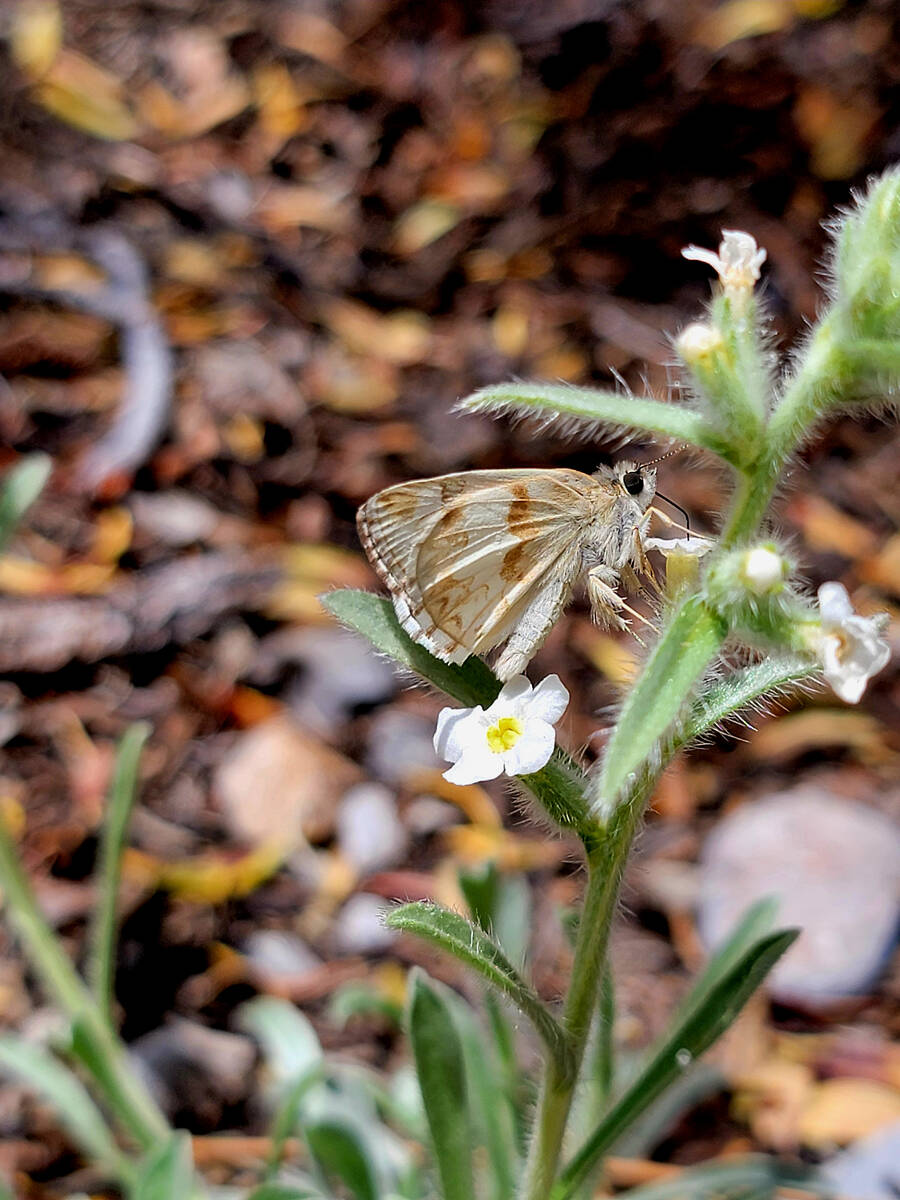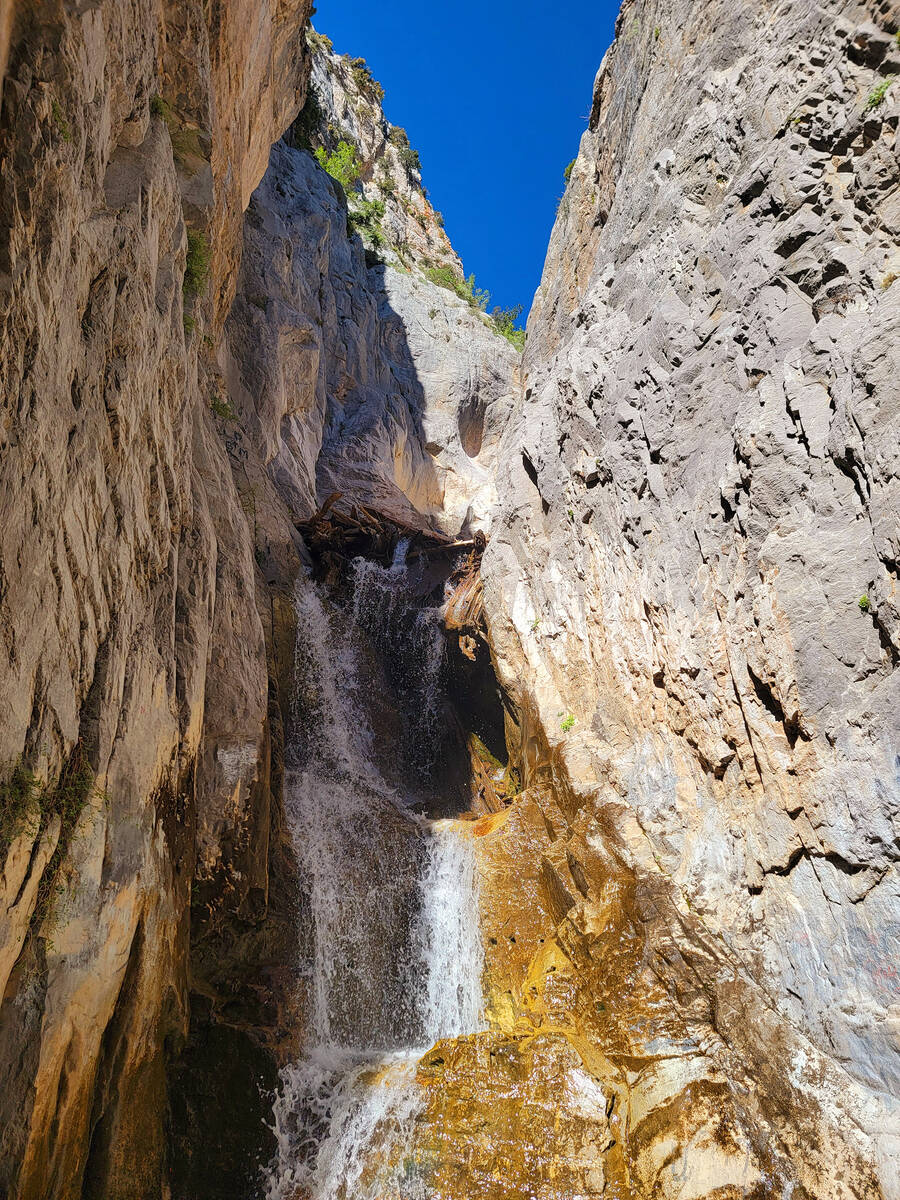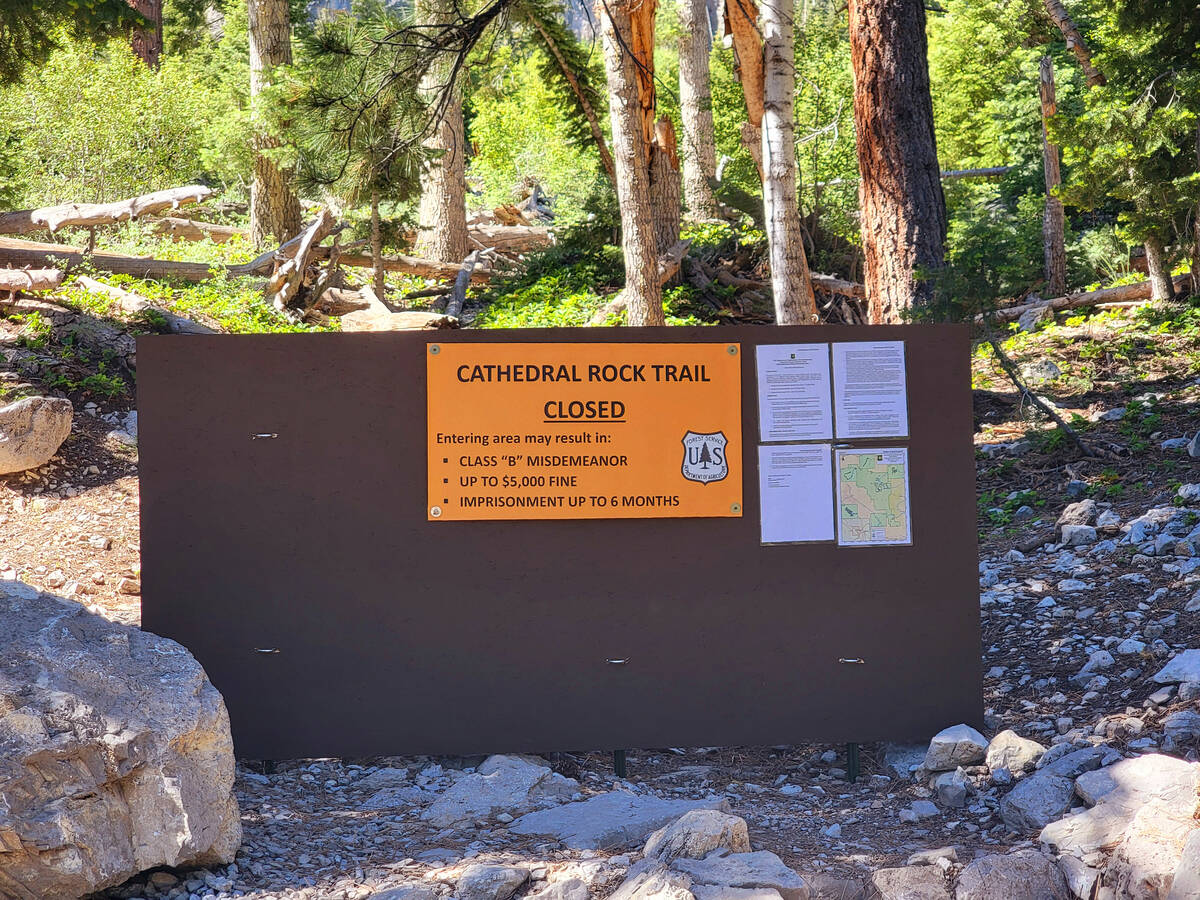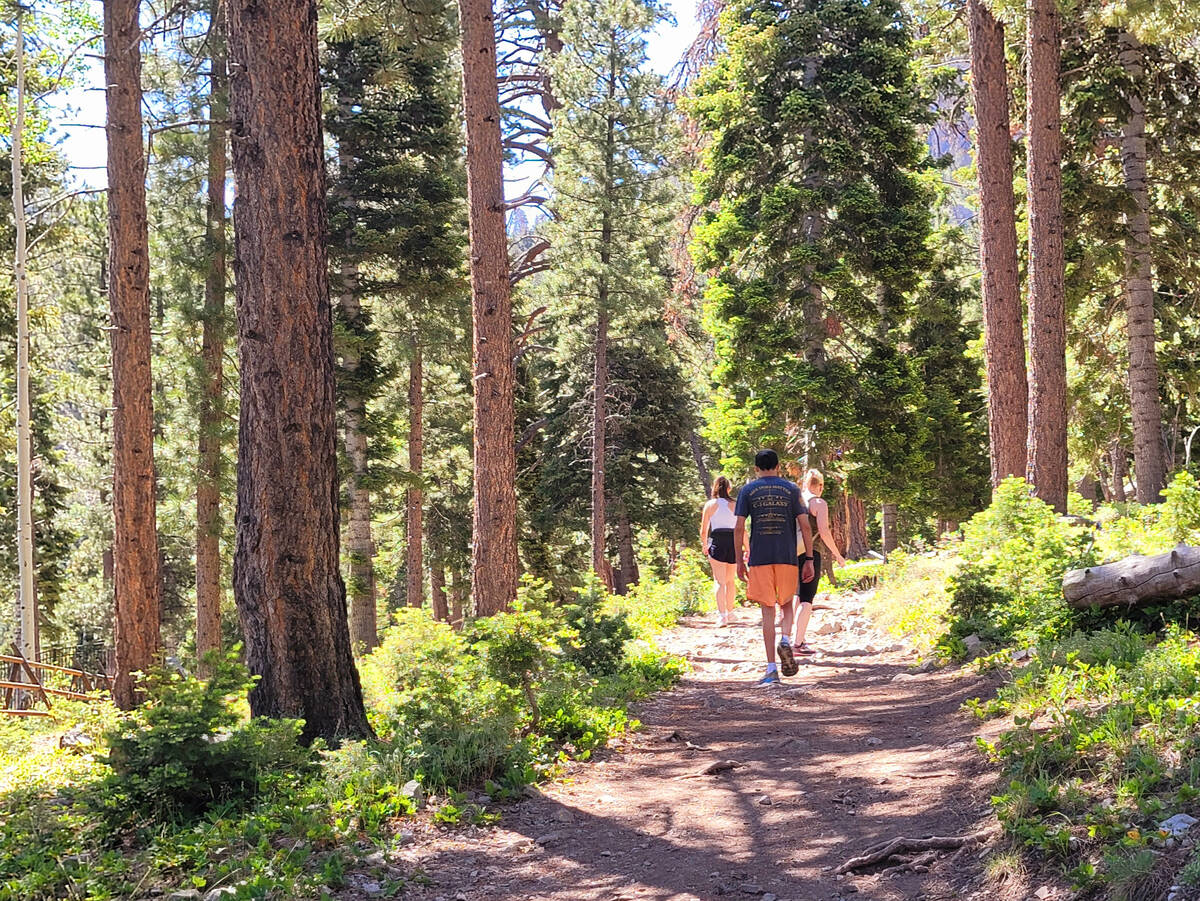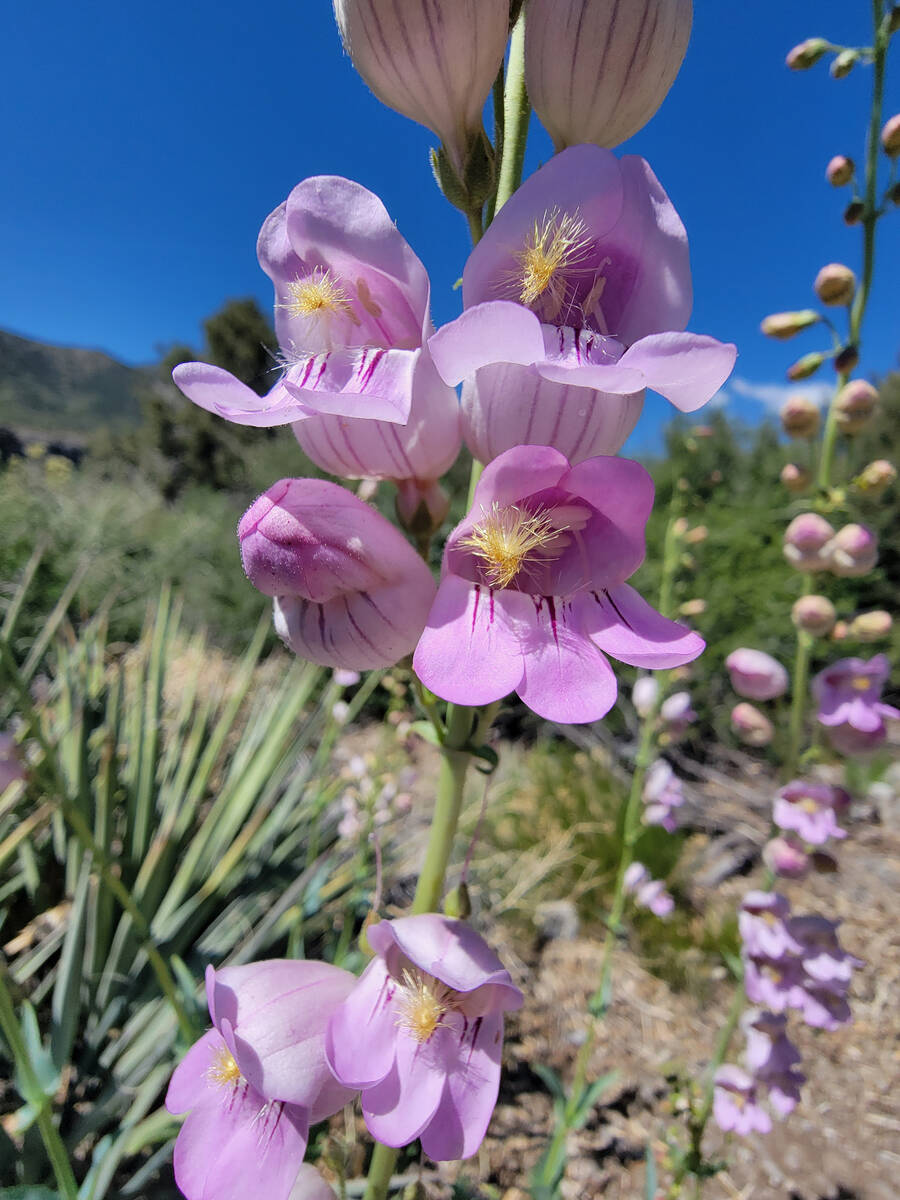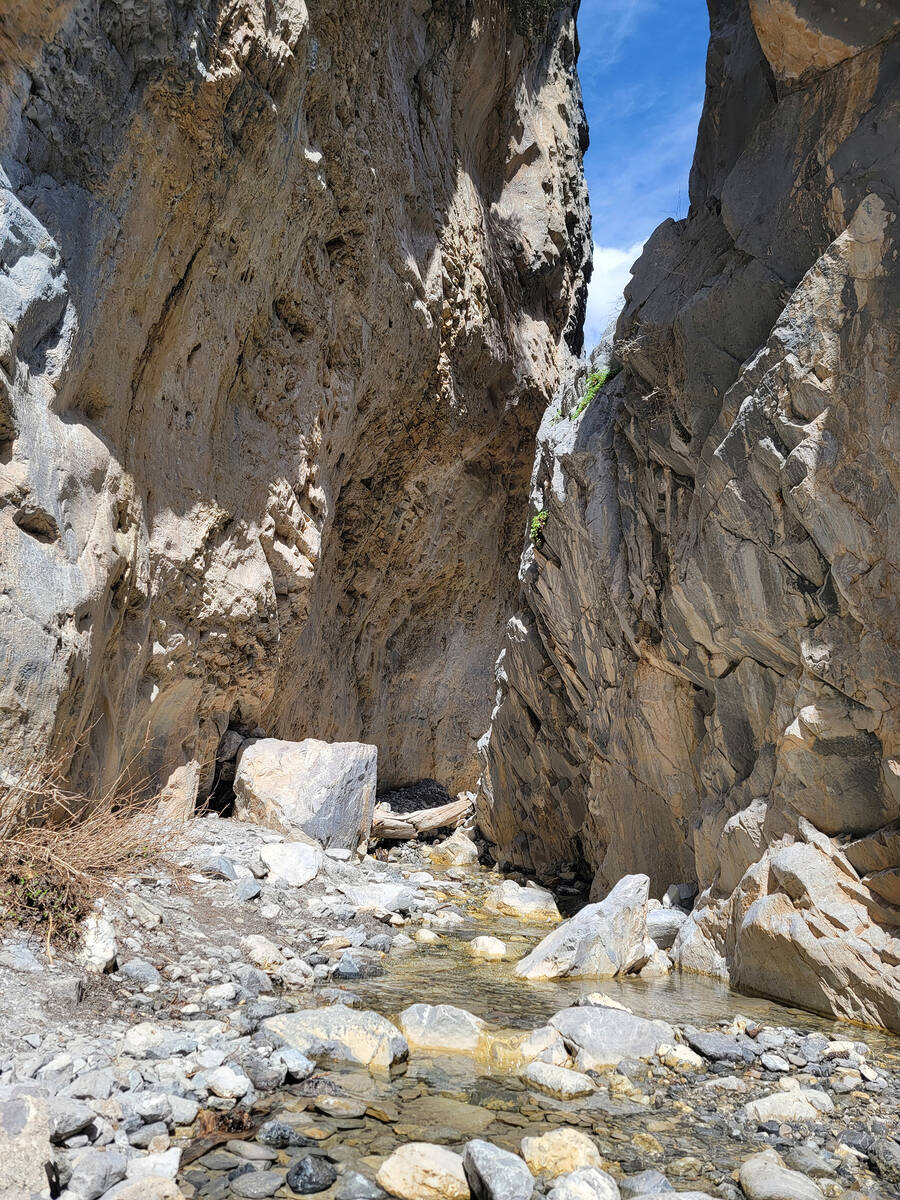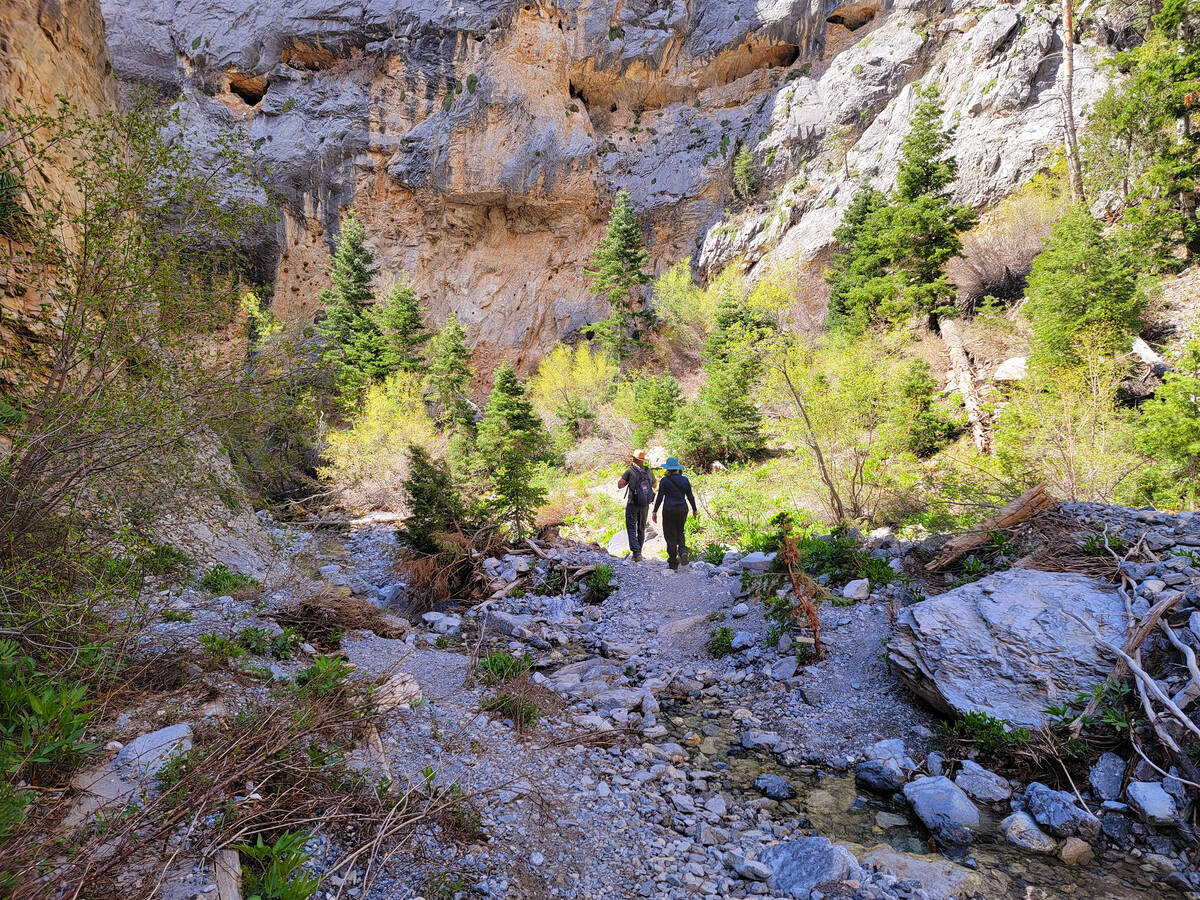Explore lesser-known hiking routes at Southern Nevada’s favorite summertime retreat
Hiking options are limited at Southern Nevada’s favorite summertime retreat, but Mount Charleston’s network of still-open trails offers plenty of picturesque views and potential discoveries.
While hazardous conditions have closed Cathedral Rock trail to the public, its parking lot remains open and allows access to Little Falls and South Loop trails in Kyle Canyon. The Little Falls hike is a short but tricky one with water crossings and a payoff at the end with views in June of a three-tiered waterfall. South Loop trail is ultimately a grueling ascent to Mount Charleston peak, but hikers need only trek as far as they want on this wildflower-lined path before turning around to head back. Temperatures up there are 20 degrees cooler, ponderosa pines provide shade and hermit thrushes share their lovely songs.
On the Lee Canyon side of Spring Mountains National Recreation Area, hikers are banned from the popular Upper Bristlecone trail near the ski resort, but they can still hike a couple of miles on the Lower Bristlecone trail, which starts near Lee Meadows. In the past, many hikers turned the Upper and Lower Bristlecone sections into a 6-mile loop, but now the only permissible hiking is out and back on the Lower Bristlecone trail. Along this tranquil and easily managed trail, hikers can spot endemic wildflowers and hear the squawking of Clark’s nutcrackers or the softer conversations of mountain chickadees high up in the pines and firs.
A fierce storm’s legacy
The destructive forces of water and gravity that caused the current trail closures are evident on a smaller scale at Fletcher Canyon trail, which remains open for hiking. Last August, the impact of Tropical Storm Hilary transformed the start of the moderately challenging Fletcher Canyon hike. Much of what used to be a dirt path at the beginning of the trail is now a walk through gravel streambed.
Last summer’s flooding washed away parts of the dirt path, exposing roots of nearby trees and shrubs. Because the streambed mostly parallels the original path and sections of the gravel became trail, hikers are still able to reach the end of Fletcher Canyon to enjoy its seasonably cascading waters.
The trail just looks different in parts, including areas where floodwaters carved out new banks and left behind broken branches, rocks and debris.
But Tropical Storm Hilary left large-scale destruction on other trails, including Mary Jane Falls, Trail Canyon, Cathedral Rock and Upper Bristlecone. All are closed indefinitely. Flooding on those trails carved wide, deep and dangerous trenches, knocked down trees and cluttered the area with broken tree limbs and other debris.
GoMtCharleston.org, managed by Southern Nevada Conservancy in partnership with the U.S. Forest Service, reports, “Flooding caused the majority of the Cathedral Rock Trail to be obliterated with washouts and debris flows. In sections, the trail is deeply trenched and rutted with hazardous trees, either leaning or downed, along it.”
On the Lee Canyon side, according to GoMtCharleston.org, “About 1 mile of the Upper Bristlecone Trail was washed out and around a 6-foot by 15-foot trench formed through the trail.”
The U.S. Forest Service has posted signs warning hikers to stay away from those trails and Deer Creek picnic area or face $5,000 fines, potential jail time and delays in emergency services if rescues are necessary.
Off the beaten paths
For some hikers, current trail closures could be the perfect excuse to explore some of Mount Charleston’s lesser-known routes.
■ Easy and short hikes: The Acastus trail in Kyle Canyon and a path near Mahogany Grove group campground along Deer Creek Road are lined with informational panels about the history and nature of Spring Mountains National Recreation Area. The Civilian Conservation Corps played a major role in developing Mount Charleston’s system of hiking trails, and that history is explored. Another easy path is Lower Bristlecone trail because walkers are on a graded dirt service road with plenty of shade and stunning views, and they can turn around at any point.
■ Moderately challenging hikes: Eagle’s Nest trail is reached via Fletcher Canyon trailhead. After an early steep climb, the path becomes more manageable and offers splendid Kyle Canyon views. Broad-tailed hummingbirds are often perching on trailside branches and can be heard during their acrobatic flights. Much of the trail is exposed, which is good news for butterfly fans but bad news for those seeking lots of shade.
Spring Mountains Gateway is the starting point for a couple of other moderately challenging routes, Escarpment and Pack Rat. The visitor center is at a lower elevation, about 6,600 feet, so temperatures on those trails aren’t as cool as ones starting at the Cathedral Rock parking lot. Information on trail options and recreational opportunities, including routes starting at lower elevations along state Route 157, is available at the Spring Mountains Gateway. The visitor center is open daily but not until 9 a.m., when summer temperatures have already started to climb.
■ Difficult hikes: The South Loop and North Loop trails lead to the nearly 12,000-foot Mount Charleston peak, but most hikers treat these trails as out-and-back routes and log just a few miles on them. Kyle Canyon’s South Loop trail is accessible via the Cathedral Rock parking lot.
The North Loop trail and its parking area are found along state Route 158, also known as Deer Creek Road. With current closures of other higher elevation trails, the North Loop is now the likeliest place to find bristlecone pines, the tree species with the planet’s oldest recorded specimens. The challenging North Loop hike leads to an impressive bristlecone forest at about 9,300 feet. An ascent of another 700 feet in elevation with a series of brutal switchbacks gives hikers a chance to admire the legendary Raintree, a bristlecone with an estimated age of 3,000 years.
Trail closures have limited opportunities for hikers to experience all that Mount Charleston has to offer, but remaining is a bounty of extraordinary views, towering trees, wildlife discoveries and exquisite wildflowers.
If you go
To counter crowded summer conditions, early morning arrival times mean more parking availability and the bonus of cooler temperatures. Bring plenty of water, snacks and sunscreen. More information and maps related to hiking, picnicking and camping in the Spring Mountains National Recreation Area are available from the Southern Nevada Conservancy at gomtcharleston.com.



